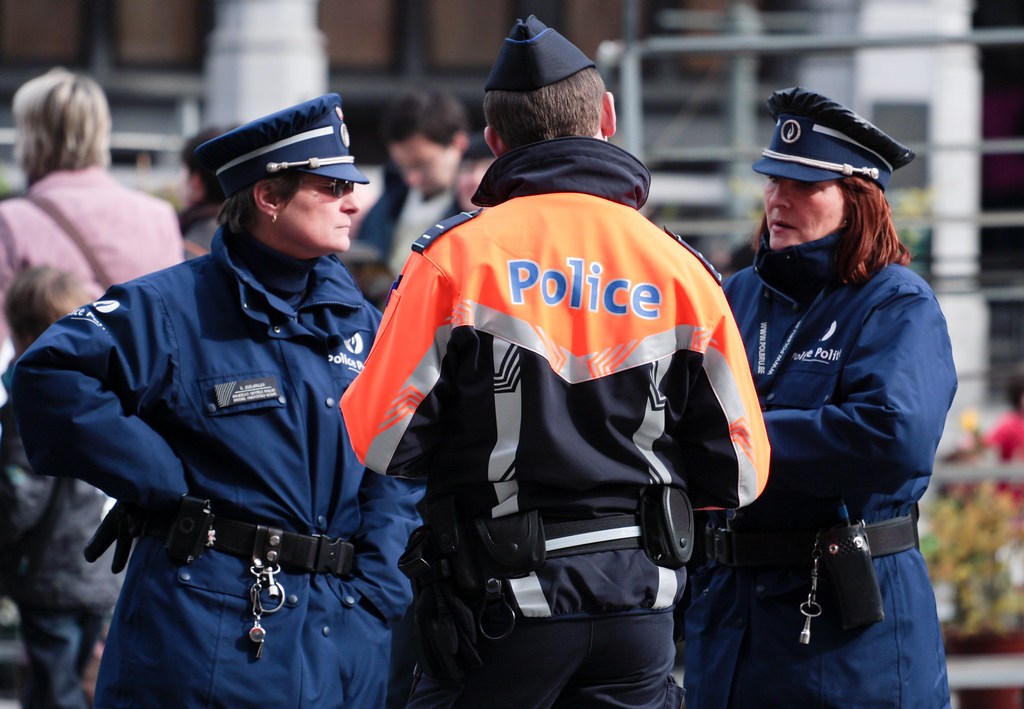When Dutch and French police came crashing down on organised crime in the Netherlands last year, criminals in the Belgian underworld of kidnapping, money laundering, cocaine, and weapons trading didn’t break a sweat.
After all, they were using 'the world’s most secure messaging app' for their illicit dealings in everything from drug trafficking to torture and murder, and the Port of Antwerp was their playground.
The reason Belgian crime lords slept soundly at night was due in part to their faith in a Canadian company. Sky ECC sold expensive custom phones equipped with their special encrypted messaging service. Texts sent with the phones were automatically deleted after thirty seconds, and if a user entered a “panic” password, the contents of the device were immediately erased.
With cameras, microphones, and GPS disabled, the phones were essentially impossible to track, and the messages supposedly impossible to crack.
While critics said that the majority of their users were criminals, Sky ECC defended their “strong belief in a right to privacy” and resisted cooperating with police and judicial authorities. Their website offered a 5 million USD (€4.2 million) prize to anyone who could crack its encryption.
“We succeeded. We will send Sky ECC the account number of the federal police,” federal prosecutor Frédéric Van Leeuw told De Standaard.
But if Belgian authorities are really planning on collecting their reward, they’ll have to look for another way to get in touch - Sky ECC’s website is no longer operating.
Cracking the encrypted app gave authorities access to the six million messages being sent per day between major criminals - not street dealers or thieves, but harbour bosses and corrupt lawyers, crime families and leaders in countries from Dubai all the way to Finland and Norway.
For almost a month, between 15 February and the beginning of this week, detectives in Belgium and the Netherlands read the messages live.
Then on Tuesday, they launched the largest police operation to have ever taken place in Belgium. Around 1,600 police officers were deployed across the country in 200 raids, seizing 17 tons of cocaine, eight luxury cars, three cash machines, police uniforms, and €1.2 million in cash along with various firearms.
48 people were arrested, including a criminal lawyer from Antwerp. A leader of Belgium’s Hell’s Angels (a motorcycle club often associated with criminal activity, and banned in the Netherlands and Germany), along with an Antwerp kickboxer sponsored by Sky ECC, had their homes searched. Members of crime families from Antwerp and Limburg were pulled from their beds.
And the work is only just beginning.
Related News
- 17 tonnes of cocaine and €1.2 million seized in major police operation in Belgium
- Cracking of encrypted messaging service dealt major blow to organised crime
- Police crack down on drug trafficking in major operation two years in the making
- Lawyers among those arrested in crackdown organised crime
- Two Antwerp police officers arrested in connection with organised crime
- Twice as many reports of price gouging during the epidemic
Police say they have opened hundreds of cases relating to money laundering, corruption, arms trafficking, and violent crime. Yesterday’s raids were primarily targeted at people responsible for distributing the Sky ECC phones, a subscription for which can cost thousands of dollars per year.
In a statement, the Canadian company said that it “firmly denies any allegation that it is the ‘platform of choice for criminals’.” They point to a need for such phones for celebrities, and businesses concerned with intellectual property theft.
For its part, the company claims that it wasn’t cracked, but rather that police distributed fake Sky ECC phones with the company’s branding through illicit channels, tricking criminals into thinking they had the real thing.
But Sky ECC had no explanation for what it described as “temporary interruptions in connection with its servers.”
The prevalence of their phones when it comes to criminals in Belgium and the Netherlands is astounding - one in four active users of the service is in one of the two countries (6,000 in Belgium and 12,000 in the Netherlands).
There are 171,000 active Sky ECC phones worldwide, but only 70,000 of those make monthly calls on the network.
About half of the users in Belgium were located in or around the port of Antwerp, which isn’t entirely surprising. With Antwerp being one of the world’s largest ports, Belgium is ranked 5th in the world as an entrypoint for counterfeit goods arriving by shipping container. Because less than 2% of such containers are physically searched, they’re an ideal method of transport for those involved in organised crime.
Or an ideal torture chamber. One such container by the Belgian-Dutch border was found to have been converted into just that, its discovery last summer also the result of the cracking of an encrypted messaging service - in this case Encrochat. Its cracking by French and Dutch investigators led to over a hundred arrests in the Netherlands and uncovered a network of drug laboratories.
A number of investigations are also still currently underway in Belgium based on the information from that cracking.
Police expect that over the coming weeks and months, several new cases will be opened (or additional reports will be drawn up in ongoing ones) now that Sky ECC has followed.
Public prosecutors are calling it a breach in the walls of organised crime, all because 'the world’s most secure messaging app' wasn’t so uncrackable after all.

